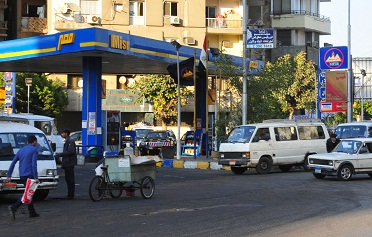The project for foresting solar technology in the Mediterranean region, FOSTEr in MED, was completed at a cost of €4.5m, and financed by the European Union (EU) through the European Neighbourhood and Partnership Instrument – Cross Border Cooperation Programme (ENPI CBC MED).
In 2007, the European Council adopted ambitious targets to shift climate and energy sources by 2020. This comes as part of a strategy to reduce greenhouse gas emissions by 20%─or even 30%, if conditions are favorable─, increase renewable energy production to 20%, and improve energy efficiency by 20%.
The FOSTEr in MED project aims to find solutions between theories and practices in the solar energy sector, transferring the accumulated experiences through training, and distributing specialised architectural integration instructions.

(Photo Handout to DNE)
The programme worked on bridging the gap between theory and practice in the solar energy field by transferring competencies and providing training. The support includes setting guidelines to achieve the architectural integration of solar energy technologies and the implementation of pilot projects within the framework of best practices. The programme helped in preparing a common theoretical approach in the field of renewable energy, and in the establishment and development of local communities, including local authorities, universities, research centres, commerce chambers, and representatives of SMEs.
FOSTEr in MED encouraged the promotion of innovative solar photovoltaic (PV) technologies in the Mediterranean region. This project embraces a multi-layered strategic approach through the participation of local stakeholders, so as to ensure a multiplier effect (in terms of results) of the project’s activities in the Mediterranean Sea region, and then publish and transfer these results both outside the boundaries of the partnerships and after the project is completed.
The project is characterised by a strategic approach that aims to influence the different layers of civil society. It also has a committee of experts and a Technical Scientific Committee (TSC) that consist of individuals and experts from the Mediterranean countries, coming from universities, research centres, the private sector, and institutional sectors.
Salma El-Sahhar, the project manager of the FOSTEr in MED project at the Confederation of Egyptian European Business Associations (CEEBA), said that in the course of the past three years, the project has promoted the adoption of innovative solar PV technologies in the Mediterranean area and exploited the potential of solar technologies through the transfer of technical knowhow to those involved in the sector (small- and medium-sized enterprises, engineers, students). It also identified the best practices in the policy and regulatory fields, and the implemented five pilot projects aiming to equip public buildings with innovative solar PV plants. One of these buildings is that of the Alexandria Chamber of Commerce, the first .
The Alexandria Chamber of Commerce in Alexandria is one of the five public buildings and the first Mediterranean chamber to be solar-equipped, hosting the innovative solar PV plants, and testing different technological solutions and architectural integrations. The other buildings selected to be part of the project are: Balqa college in Aqaba, Jordan; the Lebanese University Campus in Hadat in Beirut, Lebanon; the Centre National de Formation de Formateurs et d’Ingénierie de Formation (CENAFFIF) in Tunis, Tunisia; and the Regional Agency for the housing construction industry (AREA) in Cagliari, Italy.
El-Sahhar added that Onera Systems has completed the installation of a solar power plant at the Chamber of Commerce in Alexandria through the FOSTEr in MED project with a total peak power capacity of 13.72 kWp, a yearly energy yield of 19,813 kWh, and an annual CO2 emission reduction of 11 tonnes.
The PV is integrated in the building, intercepting the direct heat radiation on the roof where 56 coloured modules have been installed to match the building’s architectural design.

(Photo Handout to DNE)
She further added that the funding of the FOSTEr in MED project, which aims to promote solar technology in the Mediterranean region, came within the first call to establish strategic projects and promote environmental sustainability. The project aims to contribute to transferring knowledge and technology in the field of solar energy to the Mediterranean region through cross-border cooperation.
The project educated at least 3,500 students from 60 schools, and 350 citizens about solar energy technologies, prepared at least six sheets of public policy proposal, and implemented five projects with a capacity of 85 kW (about 17 kW per station).
Kamelia Youssef, the technical expert of FOSTEr in MED, said that the project aims to educate and apply. The educational side includes educating school and university students about the integration architecture of solar energy, while the application side comes through implementing a project to identify the importance of solar energy more clearly.
She stated that solar panels can be installed on buildings’ windows in order to produce electricity and protect buildings from high temperatures.
According to Youssef, three training sessions were held. The first session trained graduate students of engineering colleges and institutes from Cairo, Tanta, and Alexandria about the architectural integration of solar energy. It lasted for six days. The second session taught technicians and workers how to install, operate, and maintain solar plants throughout six days. The third session trained designers on solar energy programmes.
Youssef said that the application side of FOSTEr in MED included the launch of a solar energy plant project with a capacity of 13.7 kW, producing 20,000 kWh annually at the Alexandria Chamber of Commerce building.
The partnership project is composed of different research institutions, public administration, and representatives of private sector, including the University of Cagliari in Italy, the Association of the Mediterranean Chambers of Commerce and Industry (ASCAME) in Spain, the Promotional Services Centre for enterprises (CSPI) in Italy, the Confederation of Egyptian European Business Associations (CEEBA) in Egypt, the Industrial Research Institute (IRI) in Lebanon, the Royal Scientific Society (RSS) in Jordan, and the Chamber of Commerce and Industry of Tunis (CCI Tunis) in Tunisia.




